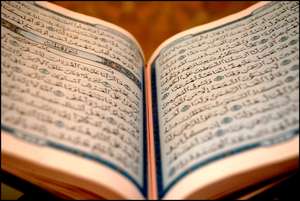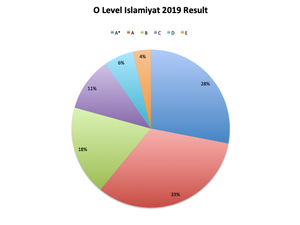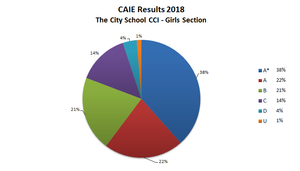
Hazrat Umar and his caliphate
Past paper questions
2009 May -- June
UMAR ( R A)
Q a ) Trace the expansion of the Islamic empire under the rule of the caliph Umar (R A)
Ans. Hazrat Umar R A was nominated as the second caliph for Muslims by Hazrat Abu Bakar R A purely according to the Islamic principals, from 634 till 644 AD . Hazrat Umar RA through his strong military skills defeated the mighty empires of Persians and Romans during his rule and was known as Amir ul Momineen . Muhammad said about him there will no Prophet after me but if there was a prophet after me it would have been Umar .
Several battles were fought with Persians as relationship with the Persians was not good in the beginning as the king Khusroo Pervaiz reacted harshly towards one letter sent to him by Muhammad . The enemity of the Persians was further revealed in the rebellion of Behrain when they helped the enemy of the Muslims. The province of the Persian empire . Iraq was a land of immense wealth due to the flow of Euphrates and River Tigris but the Persians did not allow Islamic Arabia to carry on trade with them besides the Arab tribes who lived on the borders of Iraq , helped their relatives in Arabia to rise against Islam . All these were the major reasons that Umar R A decided to come in conflict with Persians . The first battle was the battle of Namarraq in which Musana was the leader of the Muslim army who defeated famous Persian general Rustam . After this victory muslim commander Abu Ubaidah Jarrah decided to fight across the river Euphrat but unfortunately this decission proved fatal for the Muslims they got defeat Muslim leader was killed and finally Musana brought the Muslim army back but they suffered heavy losses in this battle which is also known as battle of Bridge . The Persian of Buwaib faced crushing defeat. Finally, Hazrat Umar R A declared Jihad all over the land and Muslims fought a decisive battle called battle of Qadisyia against Persian army again commanded by Rustam , Saad R A was the Muslim leader and being unwell he directed the operations from his sick bed . The fight lasted for 3 days and finally Muslims defeated the Persians. This battle was a decisive victory in the history of Islam it completely broke down the power of the Persians.
Capture of Madain , Battle of Jalula , Battle of Nanawand . After a few months Saad R A marched against Madain and occupied it. The Persian forces at Jalula made great preparations to fight against the Muslims . Saad R A sent a strong army under Qaka to meet the Persians Muslims laid seige which was dragged on for 7 months. Muslim commander pulled back his army so that the entire Persian army may be brought into a field. Then the action began with a heavy attack by both sides. Later in the afternoon a severe storm began to blow which also helped Muslims get victory at Jalula . After this battle Muslims signed a peace agreement with the Presians which they soon broke and the Persians emperor led an army of 60,000to fight against Muslims who were 30,000 in Nanawand. After three day fight Muslims defeated the Persians and their power was completely shattered . The Persians king fled to Isphanan and later he was killed during the rule of Usman RA . This victory also proved the way for the Muslims to rise as a world power.
Reasons to fight against Romans
Battle of Yarmuk (fall of Syria ). The relationship with the Romans was cordial at the begining as the Roman emperor Heraclius gave a polite reply when Muhammad sent him a letter of invitation in the 7th year of hijrah . But losses on the Muslim envoy was robbed and because of battle of Mutah relationship was deteriorated during the rule of Hazrat Abu Bakar R A Roman emperor angered the Muslim ruler by instigating bedoin tribes of ajnadain After the loss of three important cities Demascus , Jordan and Yemen the Roman encamped at the valley of Yarmuk. Abu Ubaidah along with an army of 40,000men negotiated with the Byzantine who offered Muslims a large amount of wealth which was declined by the Muslim leader . Muslims gave the 3 options ; convert to Islam, pay jizya but they chose the third the third option which was to fight. On the sixth day only one third of the Byzantines remained and the battle ended as victory
Fall of Jerusalem and conquest of Egypt , death of Umar R A muslim forces spread in all directions and cleared the way to Jerusalam which was strongely forfited by deep valleys. Muslim army laid siege to Jerusalam but due to cold weather , the seige was dragged on and the Byzantines offered strong resistance. Amr bin Aas wrote to Abu Ubaidah for reinforcement which caused the citizens to loose heart and they decided to sign a treaty with the caliph Umar R A . Hazrat Umar entered the city with only one slave and one camel which they rode alternatively which shows his simplicity and humble nature and the Jewish praised it in these words “ Verily Islam has excelled all other religions in simplicity “ Umar R A signed a just and fair treaty with them and refused to offer prayers in a church to protect the rights of Christians . He also laid foundation of a mosque known as Umars mosque . During 8th A.H 630 Amr bin Aas set out for Egypt with 40,000 men attacking small towns until he laid seige to fushat which lasted 7 months king of Egypt became furious at the fall of Fustat and sent an army to Alexandria which was the capital of Egypt Byzantines were 55,000 while Muslims were 12,000 but still gave defeat to Byzantines when they came out of their fort. Roman king also died while Muslims conqured Alexandria Hazrat Umar R A was attacked by one of the slave and died in the month of Zilhajj 23 A H .
2011 May --June
Q ) Write a detailed account of the administrative measure put in place by Umar R A during his caliphate.
Ans ) Introduction :
Hazrat Umar R A not only conqured a vast empire during the 10 years of his Khilafat but also consolidic it by an effective system of administration . Thats the reason his rule is recognised as the golden period in the history of Islam.
Majlis - e - Shura, army reforms :
Hazart Umar RA continued the practice of consult his companions by following Hazart Abu Bakr and Muhammad he estabalished a Majlis e Shura consistingof prominent companions of Muhammad and he used to consult it on all matter . He also consituted a larger body called the Majlis - e - Aam consisting of Muhajireen and Ansaar and representives of various tribes . This was called into session on special ocassions Hazrat UImar maintained a well disiplined army which was divided into cavalry and infantry and he was particularily concerned about their welfare. But in case of deglect of duty he would inflict severe punishments on them. He forbade them to live with the settled people in cities and ordered them to live incontoments. Hazrat Umar R A also devoted a great deal of his time to religious matters Teachers were sent villages to teach the holy Quran and the army officers too had to learn the Holy Quran .
Administrative structure, Judicial System .
Hazrat Umar R A made new rules and regulations in accordance with the Quran and the Sunnah to give the Islamic state a clean and efficient administration . The state was divided into provinces and each province was placed under an efficient governor called the Wali or Ameer who was also the military and religious head. The provinces were further divided into districts and placed under Amils. At the governor and Amils were called to Makkan on the ocassion of Hajj for their accountability.All important appointments were made purely on ment and a after consulting with the Majlis - e - Shura . The appointee was requried to give a written statement and pledge to lead a simple life and had to submit particulars of his property so that on his retirement, it may be seen whether he had collected wealth by illegal means . Hazart Umar CRA) kept a very strict watch on the activities of his officers . He used to receive secret reports from officers specially appointed for this purpose Hazrat Umar R A entrusted the Qazi with judiciary to ensure was just and impartial . The Qazi was completey independent of the provincial government.
Financial System :
Umar R A established new departments and institutions such as the department of military , education, jail police etc. He also established a department of finance under the name of Dewan which was in charge of the revenue of the Muslim state. The function of this department was to regulate the receipt and distribution of the revenue of the empire. The main source of the revenue were jizya, zakkat, kharaj ( spoils of war ) Besides these , Umar R A instituted new tax namely Ushr which is one tenth of the produce taken from land owners and a commercial tax imposed on non Muslim merchants and zakkat on the ownership of the horses . After meeting the expenditure of the state of the state , the surplus money used to be distributed among the muslims on the basis of relationship with Muhammad , priority of conversion to Islam. In this way all Muslim men, women, slaves and children had shares in the Bait ul maal of the public treasury. Hazrat Umar took special care of the welfare of the farmers. After the conquest of Iraq , Iran and Syria , he made it a law that no Arab should acquire land in the conquered territories and that the actually rulers of the soil should be allowed to retain possesssion of their land .
Town Planning :
Hazrat Umar R A also devoted attention to town planning and had several cities for example Kufa and Basra built according to properly drawn up plans . He paid particulars attention to the well-being of non-muslim subjects . He made sure the security and protection of their fundamental rights and their religious places as well. He used to show special kindness and compassion towards them . He introduced the Muslim era of Hijrah, the system of old age pension and census of population of the muslim state ( the number of people in the country ) he also took steps to check hoarding profiteering and appointed officers to check weights and measure . Hazrat Umar (R A) also fixed a certain amount of money for the people who are jobless , old and for every child born in a muslim state Umar R A stands unparalleled in every aspect of administration in the history of Islam.






Comments